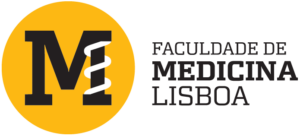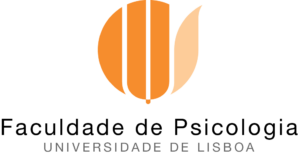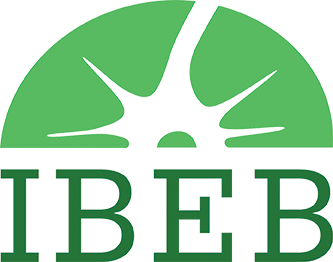Doctoral Program
in Cognitive Science
of the University of Lisbon
Co-organized by the Faculties of Sciences, Letters, Medicine and Psychology
PhD in Cognitive Science
An Innovative Program
Cognitive science undertakes the scientific study of cognition — brain, mind and behaviour — through the integration and the fostering of concepts and contributions of several areas from Psychology, Neuroscience, Artificial Intelligence, Philosophy, Linguistics, Evolutionary Biology, Anthropology and other social sciences, and the application of formal methods from Computer Science, Mathematics and Physics.

Program Description
Doctoral Program in Cognitive Science
Cognitive Science undertakes the scientific study of cognition — brain, mind and behaviour — through the integration and fostering of concepts and contributions of several areas from Psychology, Neuroscience, Artificial Intelligence, Philosophy, Linguistics, Evolutionary Biology, Anthropology and other Social Sciences, and the application of methods from Computer Science, Mathematics and Physics.
Given its interdisciplinary nature, Cognitive Science calls for a post-graduate program that bridges knowledge gained from the exact sciences, life sciences and the humanities within a strong scientific approach. Taking into account the wide range of competences developed at its different Faculties and Departments as well as the excellence of the results obtained by its many research centers, the University of Lisbon has outstanding conditions to offer a high quality doctoral studies in Cognitive Science.
This PhD Program in Cognitive Science of the University of Lisbon has as its primary goal to train a new generation of experts who can combine its various disciplines into an integrated science of cognition, mind and brain, as well as explore the application of the knowledge being generated in this domain.
Doctors in Cognitive Science handle the design, development and operation of services and systems with a strong cognitive component, on the basis of scientific research about the mind and the brain. Examples, among many others, of their areas of action are the inovation, research and direction in: Technological companies, of consultancy and auditing; Companies with advanced systems of interaction with users; Companies and institutions in the area of health care and support to persons with special needs; Regulatory and certification Entities; Institutions in the hospital sector; Laboratories of research and development; Higher education and research institutions, etc.
We are interested in candidates with ample interests in Cognitive Science and who, having had previous education in a specific discipline related to Cognitive Science. demonstrated an academic performance above average, high learning autonomy and high capacity to integrate knowledge from different areas, and are strongly motivated to pursue an interdisciplinary post-graduate program with a demanding research basis.
For potential candidates interested in knowing more about what is Cognitive Science, it is worth suggesting an introductory textbook, as for instance, among many possible others, Jay Friedenberg and Gordon W. Silverman, 2015, Cognitive Science, SAGE Publications.
Also for potential candidates interested in knowing more about the present program in Cognitive Science, it is worth suggesting an attentive reading of the syllabus and of the description of the courses therein, presented in other pages of this site. For potential candidates that plan to be working at the time of undertaking this post-graduation, it is relevant to consult the timetable of courses, also in this site, and to make sure that their labor contracts ensure enough time and flexibility.
It is also worth indicating what this post-graduate program is not, aiming at avoiding eventual equivocation.
This program does not offer a menu of mono-disciplinary courses (e.g. either Computation, or Psychology, or Linguistics, or Neuroscience, etc.) of which the student will chose one discipline, but rather a course on Cognitive Science, based on the contribution and integration of the different contributing disciplines.
This program does not offer training for the development, and possible accreditation, of therapeutic or clinical competence. Also it does not offer training for the acquisition of self-help techniques, skills or solutions.
These are examples of some dissertations concluded in the program:
Silva, Carla, 2017. Processamento auditivo e efeitos de incongruência no processamento semântico. http://repositorio.ul.pt/handle/10451/29158
Ribeiro, João, 2016. Sistemas dinâmicos não lineares em doença mental. http://hdl.handle.net/10451/25145
Fernandes, Eunice, 2015. Syntactic priming as a window into the representational and experiential basis of syntactic processing in comprehension. http://repositorio.ul.pt/handle/10451/20606
Contributing Disciplines

Psychology

Neuroscience

Artificial intelligence

Philosophy
Linguistics
Associated Faculties and Departments
Syllabus
1st Year - 1st Semester
Foundations of Cognitive Science
Coordinator David Yates, Departamento de Filosofia, Faculdade de Letras
The aim of the course is to provide a survey of the philosophical foundations of current cognitive science, especially the main trends and views on the nature of mind and cognition available therein. Topics to be examined include: what is cognitive science – its aims, research methods, and intervening disciplines; some salient problems and research areas – concepts, perception, language, memory, emotion, intelligence; the basic axiom of cognitive science – the mind as a computational device; the architecture of the mind – the symbolic model (and the language of thought hypothesis), the connectionist model, and the dynamic model; the issue of the modularity of the mind.
Advanced Topics in Cognitive Neuroscience
Coordinator Ana M. Sebastião, Instituto de Farmacologia e Neurociências, Faculdade de Medicina
This subject offers advanced training in experimental neuroscience, namely molecular and cellular neuroscience. The main mechanisms involved in excitability and neuronal communication will be covered. The student will have access to the techniques to investigate neuronal communication and plasticity (e.g. patch clamp electrophysiology, neurotransmitter release and uptake, calcium imaging) using neuronal preparations from laboratory animals. Setups and expertise to evaluate learning, memory and anxiety in laboratory animals are also available. The brain areas involved in different cognitive processes will also be focused together with imaging and neuropsychological approaches in humans.
Advanced Topics in Linguistics and Psycholinguistics
Coordinator João Veríssimo, Departamento de Linguística Geral e Românica, Faculdade de Letras
The main goal of the seminar is to provide advanced knowledge and training in the domain of Language and Mind. Theories of grammar and the architecture of human language processing are explored. Basic concepts are given pertaining to central areas of grammar, such as syntax, semantic and phonology/prosody, which will be useful to the understanding of the cognitive and linguistic processes underlying language comprehension and production. Eye tracker system and measures of reaction times are methods to be explored in laboratory work.
Advanced Topics in Artificial Intelligence
Coordinator João Balsa, Departamento de Informática, Faculdade de Ciências
This course covers central aspects of computational processing of knowledge in intelligent machines, in particular artificial agents and its applications, advancing students’ initial knowledge in this area. Notion of agents. Theory of agents and agency: models and architecture. Environments. Interactions. Organizations. Applications (education, cinema, social simulation).
Auxiliary Course 1
To be selected for each student in order to extend his background to areas he did not get acquainted previously. See list here.
1st Year - 2nd Semester
Advanced Topics in Cognitive Psychology
Coordinator Ana Luísa Raposo, Faculdade de Psicologia This subject offers advanced training in experimental psychology, and particularly in the method and theories of cognitive psychology. The subject will extend students basic knowledge of cognitive psychology and will provide an in-depth coverage of key research problems in areas such as memory, language, perception and social cognition. Different areas and research problems will be taught in a given year.Tópicos Advanced Topics in Philosophy of Mind, Language and Cognition
Coordinator Adriana Silva Graça, Departamento de Filosofia, Faculdade de Letras This course introduces a set of notions, problems and views that are central to philosophical reflection about the nature of the human mind and cognition. Among the foundational issues examined in the course are the following ones. (a) The correct typology for mental phenomena, especially the usual distinction between cognitive mental states, or propositional attitudes, and conscious states, or experiences. (b) The constitutive marks of mentality, especially intentionality, phenomenology and self-awareness. (c) The pros and cons of the most prominent views about the nature and structure of the mind: Dualism (both Cartesian Dualism and Property Dualism); Analytical Behaviorism; Physicalism (both Type-Type Physicalism and Token-Token Physicalism); Functionalism (both Machine Functionalism and Analytical Functionalism). (d) The nature and workings of psychophysical causation, including mind-world causation, world-mind causation and mind-mind causation. (e) The relations between language and thought, especially the issue of whether thought is possible without language and the issue of whether thought is possible in non human animals.Advanced Topics in Technology of Language
Coordinator António Branco, Departamento de Informática, Faculdade de Ciências This course addresses advanced topics on natural language processing and its applications, aiming at enlarging previous students’ background. Linguistic knowledge processing: Parsing and grammatical representations; Ambiguity codification and resolution; Natural language complexity; Key applications: Question answering; Machine translation; Semantic web; etc.Project Seminar
Sara Xapelli (coordenadora), Faculdade de Medicina; Luís Correia, Departamento de Informática, Faculdade de Ciências; Ana Pinheiro, Faculdade de Psicologia. This seminar aims at the construction, presentation and discussion of a research project by the students.Auxiliary Course 2
To be selected for each student in order to extend his background to areas he did not get acquainted with previously. See list here.3rd Year
Dissertation
Student’s autonomous work under supervision towards the doctoral dissertation.2nd Year - 1st Semester
Cognitive Science Seminar 1
Coordinator António Branco, Departamento de Informática, Faculdade de Ciências Students’ active participation at scientific events that are relevant for Cognitive Science.Seminário de Research Seminar 1
Teachers David Yates (coordinator), Departamento de Filosofia, Faculdade de Letras; Tânia Fernandes, Faculdade de Psicologia; Ana Lúcia Santos, Departamento de Linguística, Faculdade de Letras; Research work towards the doctoral dissertation, including presentations of results by students.Dissertation
Student’s autonomous work under supervision towards the doctoral dissertation.2nd Year - 2nd Semester
Cognitive Cognitive Science Seminar 2
Coordinator António Branco, Departamento de Informática, Faculdade de Ciências Students’ active participation at scientific events that are relevant for Cognitive Science.Research Seminar 2
Teachers Sara Xapelli (coordinator), Faculdade de Medicina; Luís Correia, Departamento de Informática, Faculdade de Ciências; Ana Pinheiro, Faculdade de Psicologia. Research work towards the doctoral dissertation, including presentations of results by students.Dissertation
Student’s autonomous work under supervision towards the doctoral dissertation.4th Year
Dissertation
Student’s autonomous work under supervision towards the doctoral dissertation.Timetable
Tuesday::
9h00-12h00: Advanced Topics in Artificial Inteligence
Fac. Ciências, room 3.1.11
14h00-17h00: Foundations of Cognitive Science
Fac.Letras, room C017.B
17h15-19h00: Advanced Topics in Cognitive Neuroscience
Fac. de Medicina, grande auditório, Egas Moniz building
Thursday:
14h00-17h00: Advanced Topics in Linguistics and Psycholinguistics
Fac.Letras, room C238
17h15-19h00: Advanced Topics in Cognitive Neuroscience
Fac. de Medicina, grande auditório, Egas Moniz building
Timetable of the course chosen
Tuesday:
10h00-13h00: Project Seminar
day, hour and room to anounce
14h00-17h00: Advanced Topics in Philosophy of Mind, Language and Cognition
Fac. Letras, room to announce
17h15-19h00: Advanced Topics in Cognitive Psychology
Fac. Psicologia, room to anounce
Thursday:
13h00-16h30: Advanced Topics in Technology of Language
Fac.Ciências, 8.2.13
17h15-19h00: Advanced Topics in Cognitive Psychology
Fac. Psicologia, room to anounce
Timetable of the course chosen
Timetable to be defined
Research Seminar 1
Timetable to be defined
Cogntive Science Seminar 2
Timetable to be defined
Research Seminar 2
Timetable to be defined
Research
Associated Research Centers
Scientific Commission
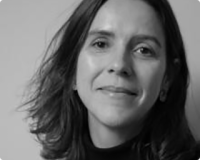
Ana Lúcia Santos
Faculdade de Letras, Departamento de Linguística Geral e Românica
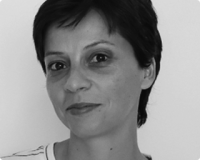
Ana Luísa Raposo
Faculdade de Psicologia, Centro de Investigação em Psicologia
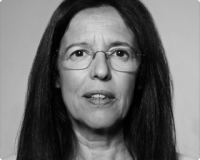
Ana M. Sebastião
Faculdade de Medicina, Instituto de Farmacologia e Neurociências Instituto de Medicina Molecular, Unidade de Neurociências

António Branco President
Faculdade de Ciências, Departamento de Informática

Luís Correia
Faculdade de Ciências, Departamento de Informática

David Yates
Faculdade de Letras, Departamento de Filosofia e Centro de Filosofia
Applications
Applications for the upcoming 2024/2025 edition of the Doctoral Program in
Cognitive Science of the University of Lisbon will take place from April 2 to June 27 (Phase 1) and from July 1 to August 16 (Phase 2) of 2024.
The lectures of the upcoming 2024/2025 edition will start in early September 2024.
Contacts
Adress:
Instituto de Formação Avançada
Faculdade de Medicina da Universidade de Lisboa
Av. Prof. Egas Moniz
1649-028 Lisboa



